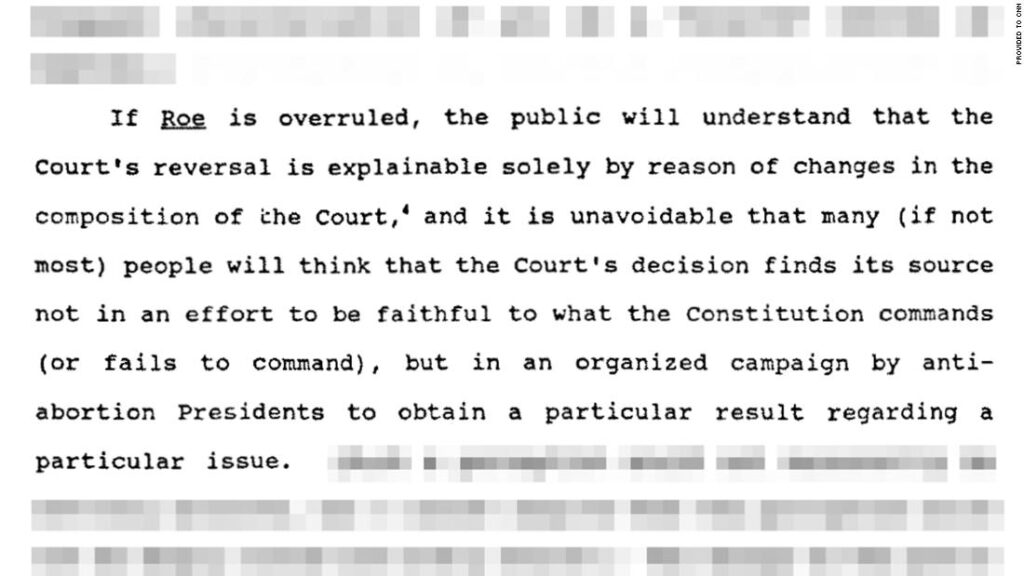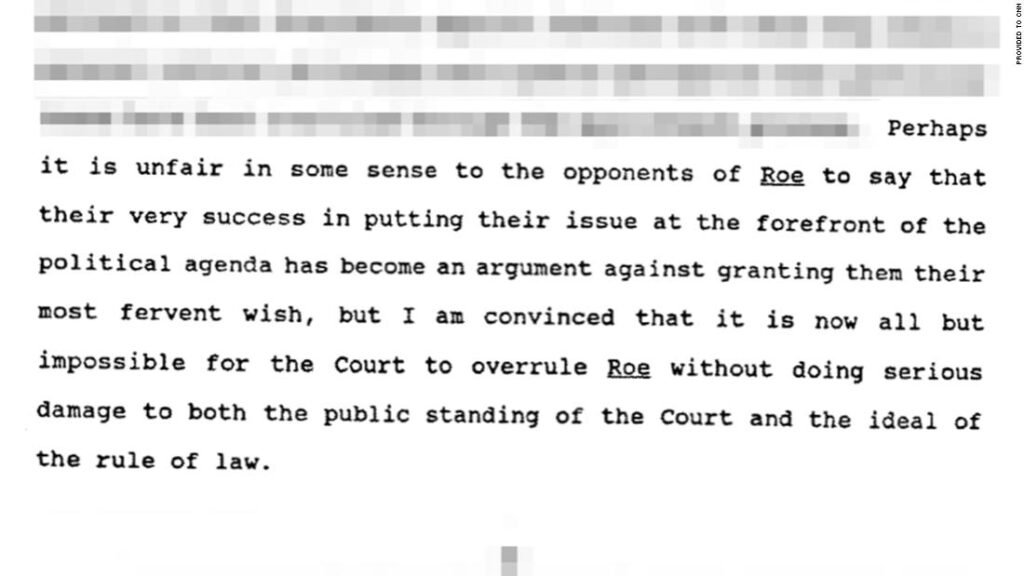The Volokh Conspiracy
Mostly law professors | Sometimes contrarian | Often libertarian | Always independent
Souter Speaks on Casey. Sort of.
We learn of a memo written by one of Souter's OT 1990 Clerks that urged him to uphold Roe.
Earlier this week, I visited the University of New Hampshire. The law school hosts a center named after Warren Rudman. Perhaps Rudman's most important contribution to our Republic was Justice David Souter.
More than a decade after his retirement, Justice Souter is once again in the news. Or more precisely, one of his law clerks is in the news. No, not the clerk who #FreedBritney. Rather, one of Souter's clerks apparently wrote an influential memo about Roe in June 1991. And Joshua Prager, who wrote a new book about Roe, published excerpts of the super-secret memo. The memo is secret, of course, because Justice Souter will not release his papers until fifty years after he dies. At that point, most of us will also be dead.
Here is an excerpt from Prager's article:
Souter knew that abortion was likely to return to the Court during his tenure. His first term on the Court was ending when, in June 1991, as former Harry Blackmun clerk Edward Lazarus later wrote in his book "Closed Chambers," he asked his four outgoing clerks to write down their thoughts on the matter. Just one argued in favor of Roe, that clerk handing Souter 32 crystalline pages that centered on stare decisis -- the doctrine that held, as Souter did, that legal precedents should ordinarily not be overruled. On the matter of abortion, wrote the clerk, that doctrine was particularly compelling. "Roe," he wrote, "implicates uniquely powerful stare decisis concerns."
The memo added that all of the proposed legal rationales for overturning Roe would threaten Griswold v. Connecticut, the landmark 1965 decision recognizing a right to contraception that established the Constitutional basis for the right to privacy. And it was relevant to the goals of stare decisis, wrote the clerk, that a generation of women had acclimated to Roe, had "shaped their lives around that right."
The memo further argued that Roe, while not beyond criticism, had a grounding in constitutional law "stronger than it currently seems fashionable to recognize." Still, the clerk allowed that if Souter felt it prudent, concerns over stare decisis would be less severe with "a relatively minor adjustment of Roe," namely, replacing the trimester framework with the "undue burden" standard of regulation that Justice O'Connor had endorsed a decade before; any law that unduly burdened a woman's right to obtain an abortion would be invalid.
All of this Souter read. And he had concluded that the Court ought to reaffirm Roe when, in conference two days after oral arguments in Casey, a majority of his fellow justices concluded the opposite.
This memo closely tracks the stare decisis anaylsis from Casey, which was likely written about Justice Souter. Now, I care about Justice Souter's views on stare decisis as much as I care about Chief Justice Burger's views on the Second Amendment, or Justice Powell's views on viability or diversity. Which is to say, not at all.
Still, Prager's column teases a riddle. Which law clerk wrote this memo? According to the ever-reliable Wikipedia, Souter had four clerks during the October 1990 Term who would have wrapped up in June of 1991.
First, Paul Salamanca had previously clerked for Souter on the First Circuit, and joined him at the Supreme Court. Paul is a law professor at the University of Kentucky. He served in the Trump Administration.
Second, John Sullivan later worked in the Bush 41 OLC, and served as Deputy General Counsel of Bush 41's re-election campaign. More recently, Sullivan served in the Bush 43 DOD and was President Trump's ambassador to Russia.
Third, Meir Feder served as Deputy Chief of Appeals Unit in SDNY during the Bush 43 Administration. He is now a partner at Jones Day.
Fourth, Peter Spiro is a law professor at Temple. Spiro is the Co-Director of the Institute for International Law and Public Policy. He briefly served as the Director for Democracy of the National Security Council in 1994. Prior to his clerkship, he worked as an Attorney Adviser in the State Department from 1987-1989.
These memos, which were not circulated, would not have appeared in the papers of Justices Blackmun or Marshall. Presumably Souter did not release the memo. More likely that not, one of his law clerks released the memo. Without any inside information. Without knowing any more, my guess would be Spiro.
In any event, Joan Biskupic finally got a Justice on record. Sort of.
Souter, 82, retired from the court in 2009 and returned to his native New Hampshire.
When contacted by CNN about Planned Parenthood v. Casey, he said he wanted "to be excused from voicing recollections of Casey."
Added Souter: "I still think that on a judge's past decisions his silence is the best course."
Agreed. I wish Justice Stevens would have followed Souter's advice.




Show Comments (8)